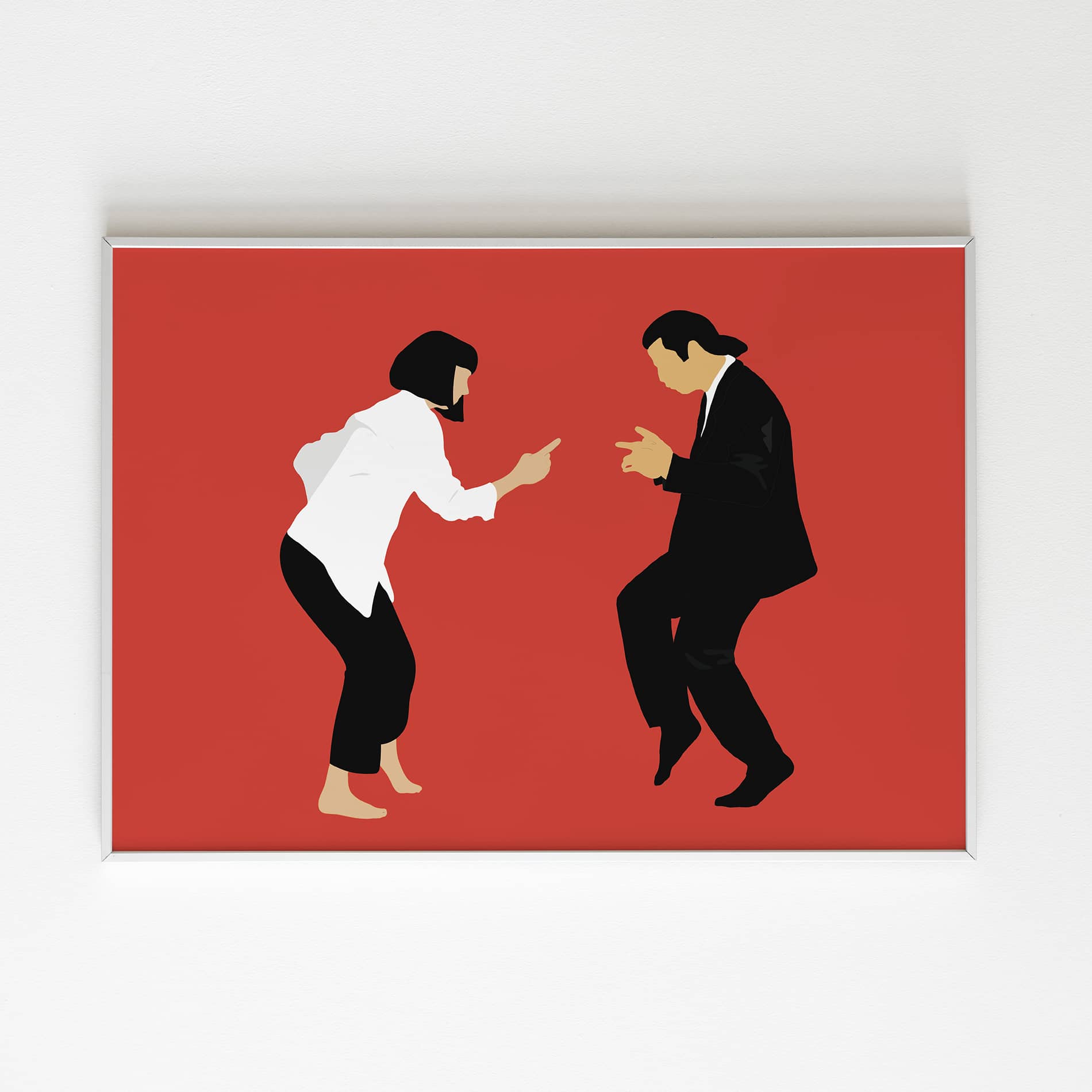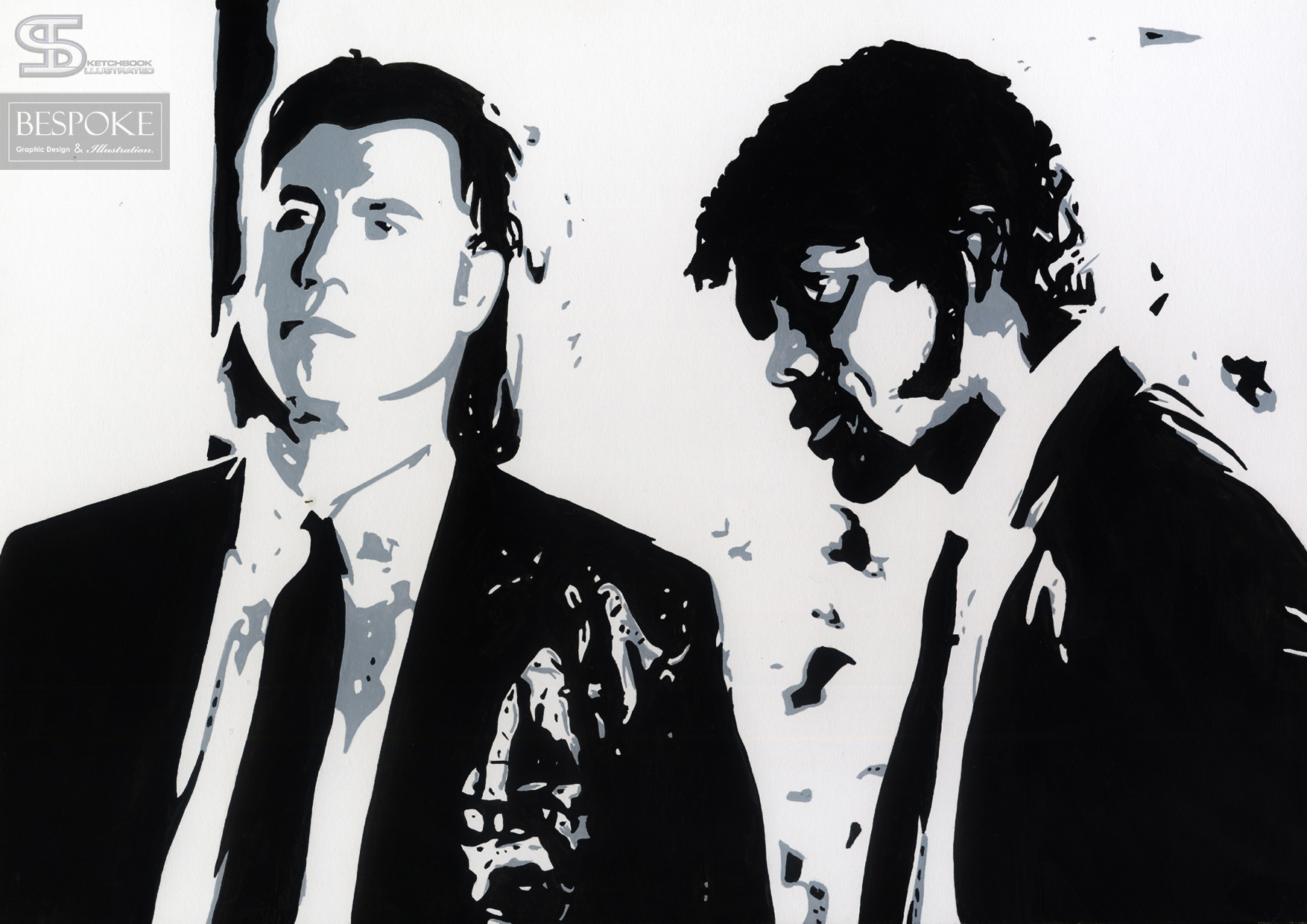Pulp Fiction Meaning: Unraveling The Layers Of Tarantino's Masterpiece
So here we are, diving deep into the world of Pulp Fiction meaning. This isn’t just a movie; it’s an experience, a cultural phenomenon that’s been dissected, analyzed, and celebrated for decades. Quentin Tarantino’s magnum opus is like a puzzle box—every scene, every line, every character has something to say. If you haven’t watched it yet, you’re missing out on one of the greatest films ever made. But don’t worry, we’re here to break it down for you in a way that’s easy to digest but still packed with insights. Let’s get started, shall we?
Now, if you’re scratching your head wondering why Pulp Fiction meaning is such a big deal, let me tell you—it’s not just about the story. It’s about how the story is told. Tarantino plays with timelines, throws in pop culture references, and gives us characters so memorable they’ve become part of our collective consciousness. Vincent Vega, Jules Winnfield, Mia Wallace—these names are legendary. But what does it all mean? That’s the million-dollar question we’re about to explore.
Before we dive deeper, let’s set the stage. Pulp Fiction isn’t just a crime drama; it’s a masterpiece that challenges the way we think about storytelling. Released in 1994, it changed the game for independent filmmakers and cemented Tarantino’s place in cinema history. The film won the Palme d’Or at Cannes and an Oscar for Best Original Screenplay. But beyond the awards, it’s the film’s impact on pop culture that keeps it relevant. Ready to unravel the Pulp Fiction meaning? Let’s go.
- Michael Cimino Actor The Man Behind The Lens And Beyond The Spotlight
- Virginia Madsen Net Worth A Deep Dive Into The Wealth Of This Talented Actress
Understanding Pulp Fiction Meaning: A Quick Overview
Let’s talk about the basics first. Pulp Fiction meaning starts with understanding its structure. The movie is divided into three interconnected stories that don’t follow a linear timeline. This is where Tarantino’s genius shines—he takes us on a journey through the lives of hitmen, boxers, gangsters, and their wives, all tied together by one central theme: karma. Yeah, you heard me right. Karma plays a big role in how the story unfolds.
Breaking Down the Structure
Each story in Pulp Fiction has its own rhythm and vibe. You’ve got Vincent Vega and Jules Winnfield on a hit job, Butch Coolidge trying to escape his past, and Mia Wallace getting into trouble with some heroin. These stories intersect in unexpected ways, creating a web of cause and effect that keeps you guessing. It’s like watching a domino effect in slow motion. Tarantino uses this structure to emphasize the idea that every action has consequences.
Key Characters and Their Significance
Now let’s talk about the characters. They’re the heart and soul of Pulp Fiction meaning. Each one brings something unique to the table, and their interactions drive the story forward. Let’s take a closer look at who’s who in this wild ride.
- What Is Data Visualization In Iot Unlocking The Power Of Connected Insights
- What Is Szas Real Name Discover The Story Behind The Rampb Sensation
Vincent Vega: The Cool Guy with a Dark Side
Vincent Vega is your quintessential hitman—suave, stylish, and lethal. Played by John Travolta, Vincent is the epitome of cool. But beneath that polished exterior lies a man who’s deeply troubled. His relationship with Mia Wallace is one of the film’s most intriguing subplots. From their dinner conversation about foot massages to the infamous bathroom scene, Vincent’s character is layered and complex. He’s the guy who knows the rules but sometimes bends them just a little too far.
Jules Winnfield: The Philosophical Hitman
Then there’s Jules, played by Samuel L. Jackson. He’s the guy who quotes Ezekiel 25:17 before blowing someone’s head off. Jules is more than just a hitman; he’s a thinker. After surviving a miraculous escape from a shootout, Jules starts questioning his life choices. His journey from killer to potential redeemer is one of the film’s most powerful arcs. It’s like watching a man wrestle with his conscience in real-time.
Mia Wallace: The Enigma in Black
Mia Wallace, played by Uma Thurman, is the film’s femme fatale. She’s the wife of crime boss Marsellus Wallace, but she’s also so much more. Mia’s character is shrouded in mystery—she’s smart, sexy, and unpredictable. Her scene with Vincent at Jack Rabbit Slim’s is iconic, and her near-death experience with heroin adds a layer of danger to her character. Mia is the wildcard in this deck of cards, and her presence keeps you on edge.
Themes and Symbolism in Pulp Fiction
Now that we’ve met the characters, let’s talk about the themes. Pulp Fiction meaning is rich with symbolism and deeper messages. Here are some of the key themes that run through the film:
- Karma: Every action has consequences, and the characters in Pulp Fiction learn this the hard way.
- Redemption: Jules’ journey from hitman to potential redeemer is a powerful exploration of second chances.
- Violence: Tarantino doesn’t shy away from depicting violence, but he also uses it to make a statement about its impact.
- Connections: The interconnectedness of the characters highlights the idea that we’re all part of a larger web of relationships.
Symbolism in Everyday Objects
Tarantino is a master of using everyday objects to convey deeper meanings. Take the briefcase, for example. It’s never fully revealed what’s inside, but its glow suggests something otherworldly. Some say it’s the soul of the person who dies, while others think it’s a metaphor for the characters’ inner struggles. Either way, it’s a powerful symbol that adds to the film’s mystique.
The Impact of Pulp Fiction on Pop Culture
Let’s not forget the impact Pulp Fiction has had on pop culture. From its iconic dialogue to its unforgettable soundtrack, the film has left an indelible mark on the world. Tarantino’s use of pop culture references and his unique storytelling style has inspired countless filmmakers and writers. But what does Pulp Fiction meaning mean for the average viewer? It’s about seeing the world through a different lens—one that’s gritty, raw, and unapologetically real.
Iconic Dialogue That Stands the Test of Time
Who can forget lines like “Ezekiel 25:17” or “Royale with Cheese”? These phrases have become part of our everyday language, proof of the film’s lasting influence. Tarantino’s ability to craft dialogue that’s both witty and profound is one of the reasons Pulp Fiction meaning resonates with so many people. It’s not just about what’s said; it’s about how it’s said.
Pulp Fiction Meaning: A Deeper Look at the Story
Now that we’ve covered the basics, let’s dive deeper into the Pulp Fiction meaning. The film is often described as a modern-day morality play, where the characters face their demons and make choices that shape their destinies. It’s a story about redemption, consequences, and the search for meaning in a chaotic world.
The Role of Religion in the Film
Religion plays a significant role in Pulp Fiction meaning. Jules’ use of Ezekiel 25:17 is just one example of how Tarantino incorporates religious themes into the narrative. But it’s not just about quoting scripture; it’s about exploring the moral implications of violence and the possibility of redemption. Jules’ decision to walk away from the life of crime is a testament to the power of faith and self-reflection.
Behind the Scenes: Making of Pulp Fiction
Let’s take a quick peek behind the scenes to see how Pulp Fiction came to life. Quentin Tarantino wrote the screenplay in just six weeks, drawing inspiration from his love of pulp novels and crime films. The casting process was a mix of seasoned actors and relative unknowns, which added to the film’s authenticity. The production itself was relatively low-budget, but the final result was anything but. Pulp Fiction meaning is as much about the making of the film as it is about the story itself.
The Importance of Casting
The cast of Pulp Fiction is a who’s who of Hollywood talent. John Travolta, Samuel L. Jackson, Uma Thurman, Bruce Willis—they all brought something special to the table. But it wasn’t just about star power; it was about chemistry. The actors had to be able to deliver Tarantino’s rapid-fire dialogue with ease, and they did it beautifully. Their performances are what make Pulp Fiction meaning so memorable.
Reception and Legacy
When Pulp Fiction was released in 1994, it was an instant hit. Critics praised its innovative storytelling, while audiences were captivated by its blend of humor, violence, and heart. The film’s success at the box office and at award shows solidified its place in cinema history. But beyond the accolades, Pulp Fiction meaning continues to resonate with viewers because it speaks to universal truths about life, love, and redemption.
Why Pulp Fiction Meaning Still Matters Today
Fast forward to today, and Pulp Fiction is still as relevant as ever. Its exploration of themes like karma, violence, and redemption continues to resonate with audiences. The film’s influence can be seen in countless movies, TV shows, and even music. Pulp Fiction meaning is a reminder that great art has the power to transcend time and space, touching people across generations.
Final Thoughts: What Pulp Fiction Meaning Teaches Us
So there you have it—a deep dive into Pulp Fiction meaning. This film is more than just entertainment; it’s a masterclass in storytelling, character development, and thematic exploration. It teaches us that every action has consequences, that redemption is possible, and that connections matter. Whether you’re a die-hard fan or a newcomer to the world of Tarantino, Pulp Fiction meaning offers something for everyone.
Now it’s your turn. What does Pulp Fiction mean to you? Leave a comment below and let’s start a conversation. And if you enjoyed this article, don’t forget to share it with your friends. Who knows? You might inspire someone to watch the film for the first time—or revisit it with fresh eyes. Thanks for reading, and until next time, keep exploring the world of cinema!
Table of Contents
- Understanding Pulp Fiction Meaning: A Quick Overview
- Key Characters and Their Significance
- Themes and Symbolism in Pulp Fiction
- The Impact of Pulp Fiction on Pop Culture
- Pulp Fiction Meaning: A Deeper Look at the Story
- Behind the Scenes: Making of Pulp Fiction
- Reception and Legacy
- Final Thoughts: What Pulp Fiction Meaning Teaches Us
- Luke Nichols Wikipedia A Deep Dive Into The Life And Legacy Of A True Star
- Did Dwayne Johnson Die Debunking The Rumors And Celebrating The Rock

Pulp Fiction

Pulp Fiction

Pulp Fiction Painting Sketchbook Illustrated